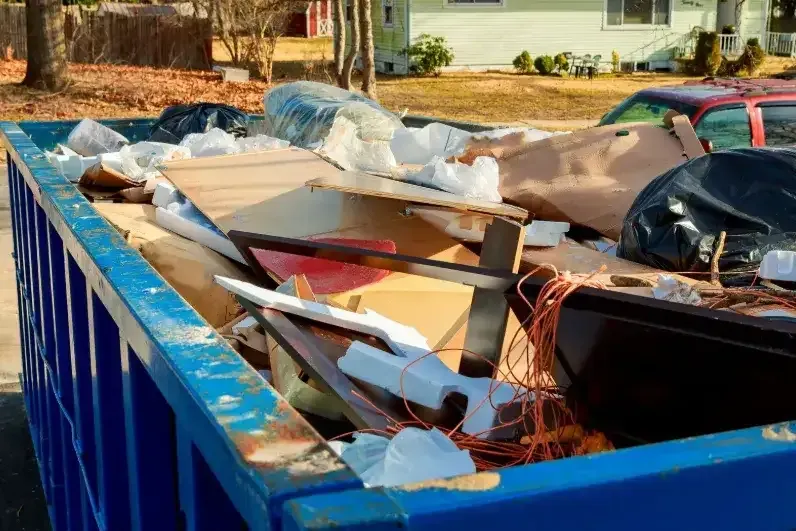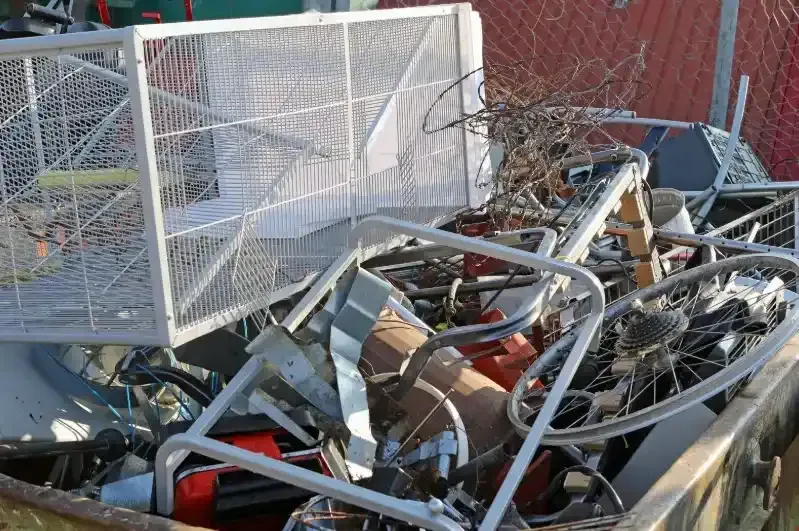Top Benefits of E-Waste Disposal for a Cleaner Environment
As technology continues to evolve at an astonishing rate, electronic waste (e-waste) has emerged as one of the most significant environmental challenges of our time. Every year, millions of electronic devices such as smartphones, computers, televisions, and other gadgets are discarded, contributing to a growing global e-waste crisis. This rapid disposal of electronics poses a threat to the environment, as many of these devices contain hazardous substances like mercury, lead, and cadmium, which can leach into the soil and water, causing long-term damage to ecosystems.
To combat this issue, it is crucial to adopt responsible e-waste disposal practices. By recycling and properly disposing of old electronics, we can significantly reduce the environmental impact of these toxic materials, conserve valuable resources, and help minimize the carbon footprint associated with the manufacturing of new products. In this article, we will explore the top benefits of e-waste disposal and how these practices can contribute to creating a cleaner, healthier environment for future generations.
Reducing Harmful Environmental Impact
E-waste contains numerous toxic materials, including lead, mercury, cadmium, and brominated flame retardants. When electronics are discarded improperly, such as being thrown in landfills, these harmful substances can leach into the soil and water supply, causing pollution. This contamination can lead to long-term environmental damage, affecting ecosystems, wildlife, and even human health.
By properly disposing of e-waste through certified recycling programs, these dangerous substances can be safely managed and removed from the environment. E-waste disposal facilities follow strict regulations to ensure that hazardous components are separated, treated, and disposed of in an environmentally responsible way, preventing them from causing irreversible damage. Through the proper disposal and recycling of e-waste, we significantly reduce the environmental risks associated with toxic materials.

Promoting Resource Conservation
The disposal of e-waste doesn’t just remove harmful materials from our environment—it also helps conserve valuable natural resources. Many electronics contain precious metals like gold, silver, and copper, as well as rare earth metals such as palladium and platinum. These metals are mined from the earth, a process that can be highly destructive to the environment, causing habitat loss, pollution, and significant energy consumption.
By recycling e-waste, these valuable materials can be extracted and reused, significantly reducing the need for new mining operations. This not only helps conserve the earth’s limited resources but also lowers the carbon footprint associated with the mining, refining, and transportation of these metals. Additionally, the recycling process reduces the demand for raw materials, which can help mitigate the environmental impact of mining and its associated practices.
Reducing Energy Consumption
The recycling of e-waste also plays a significant role in reducing energy consumption. The process of mining and manufacturing new electronics is energy-intensive, contributing to carbon emissions and global warming. In contrast, recycling electronic devices consumes far less energy compared to the production of new products.
For example, it takes significantly less energy to extract valuable materials from recycled electronics than to mine the same metals from the earth. This reduction in energy consumption helps lower greenhouse gas emissions and the overall environmental impact of producing new electronics. By embracing e-waste disposal and recycling, we are taking a step toward reducing our carbon footprint and helping combat climate change.
Preventing Landfill Overflow
Landfills are already overwhelmed with non-biodegradable waste, and the addition of e-waste only exacerbates the problem. E-waste consists of materials that are not biodegradable, which means they can persist in landfills for hundreds, even thousands, of years. Over time, these items degrade, releasing harmful chemicals such as lead, mercury, and cadmium into the soil and water, causing severe contamination of the environment.
Proper e-waste disposal can significantly reduce the volume of electronic waste that ends up in landfills. By recycling old electronics and ensuring they are disposed of responsibly, we take pressure off landfill systems, help alleviate overflows, and prevent the contamination of land and water. Additionally, this process ensures that valuable materials, such as metals and plastics, are recycled and reused instead of being buried. This approach not only reduces environmental harm but also contributes to a cleaner, more sustainable planet.
Supporting the Circular Economy
E-waste recycling plays a crucial role in supporting the circular economy, a model that focuses on maximizing the value of resources by reusing, repairing, and recycling products rather than discarding them. In a circular economy, materials are continually cycled back into use, ensuring that they remain valuable and don’t end up as waste. This model contrasts with the traditional linear economy, where products are manufactured, used, and disposed of, often with little regard for their long-term impact on the environment.
Recycling e-waste recovers valuable metals like gold, copper, and silver, which can be reused in the production of new electronics. This reduces the need to mine for these materials, helping conserve natural resources and minimizing the environmental impact of mining. By supporting e-waste disposal and recycling, we contribute to a more sustainable, resource-efficient economy that benefits both the environment and the global economy, ensuring that the lifecycle of electronics is extended and less waste is generated.
Creating Jobs and Economic Opportunities
The e-waste recycling industry is not just beneficial for the environment—it also creates significant jobs and economic opportunities. The process of recycling electronic waste involves various essential steps, including collection, sorting, dismantling, and processing, all of which require skilled labor. As the demand for e-waste recycling services continues to grow, the need for workers in these industries also increases, providing employment opportunities in recycling centers and facilities worldwide.
In addition to direct job creation within the recycling industry, e-waste disposal stimulates growth in other sectors, such as logistics, manufacturing, technology, and even education. Specialized equipment, sustainable technology, and environmentally responsible practices all contribute to the expansion of green industries. This in turn promotes economic growth while reducing environmental impact. The economic benefits of e-waste recycling extend far beyond waste management, creating a more sustainable and job-rich economy.
Enhancing Public Awareness and Responsibility
Proper e-waste disposal not only reduces environmental harm but also raises public awareness about the importance of responsible consumption and waste management. As more people learn about the dangers of improper e-waste disposal, they are more likely to take responsible actions, such as recycling their old electronics and choosing eco-friendly products. This heightened awareness encourages consumers to make informed decisions, not only about how they dispose of electronics but also about how they purchase and use them in the first place.
As individuals, businesses, and communities engage in e-waste recycling programs, they contribute to a larger global movement toward environmental responsibility. The collective action of properly disposing of electronic waste has a ripple effect that can reduce overall waste, conserve valuable resources, and promote sustainable consumption patterns. By taking responsibility for the life cycle of electronics, society plays a pivotal role in minimizing environmental damage and creating a cleaner, healthier world.
The Role of E-Waste Disposal in Sustainable Development
E-waste disposal is a critical component of sustainable development, as it directly addresses environmental protection, resource conservation, and economic growth. By responsibly recycling e-waste, we ensure that valuable materials such as metals, plastics, and glass are not wasted but instead are reused in the production of new products. This helps reduce the need for virgin materials and minimizes the negative impact of resource extraction, all while supporting a circular economy that fosters sustainability.
Moreover, e-waste disposal helps mitigate environmental pollution by safely managing toxic substances that are often found in electronics, such as lead, mercury, and arsenic. These hazardous materials can cause significant damage to ecosystems if not properly disposed of. By implementing responsible e-waste disposal practices, we are not just protecting the environment but contributing to a more sustainable future.
Reducing the Carbon Footprint of Electronics Manufacturing
The manufacturing of new electronics has a substantial environmental impact, contributing to carbon emissions, resource depletion, and high energy consumption. For instance, producing a new smartphone requires raw materials, such as metals, plastics, and glass, all of which have a carbon footprint. Furthermore, the energy-intensive processes required to extract, refine, and assemble these materials result in the release of greenhouse gases into the atmosphere.
By opting for e-waste disposal and recycling, we are reducing the need for new products to be manufactured. As mentioned earlier, recycling allows valuable materials to be reused in the production of new electronics. This reduces the carbon footprint associated with the creation of these products. Instead of creating more demand for energy-intensive manufacturing, recycling repurposes the materials already in circulation, ultimately reducing the carbon footprint of the entire electronics industry. This step contributes to the global effort to mitigate climate change and reduce environmental harm.
Conclusion
The benefits of e-waste disposal are numerous, from environmental protection to economic growth and resource conservation. By responsibly recycling e-waste, we can mitigate the harmful effects of toxic materials, conserve valuable resources, and reduce energy consumption. Moreover, e-waste disposal supports the development of a circular economy, which leads to the creation of jobs in the recycling industry. Ultimately, this process helps contribute to a cleaner and healthier environment for everyone.
For individuals and businesses looking to make a positive impact on reducing e-waste pollution and conserving resources, proper disposal of old electronics is essential. Responsible e-waste disposal not only aids the planet but also plays a critical role in creating a more sustainable future. If you require eco-friendly junk removal services, including e-waste disposal, don't hesitate to reach out to Lasso & Load Junk Removal. Our team in Gwinnett County is committed to assisting with all your e-waste recycling needs, ensuring a greener and cleaner environment. For more information, contact us at 404-227-2017 or via email at Lauren.renwickk@gmail.com.









